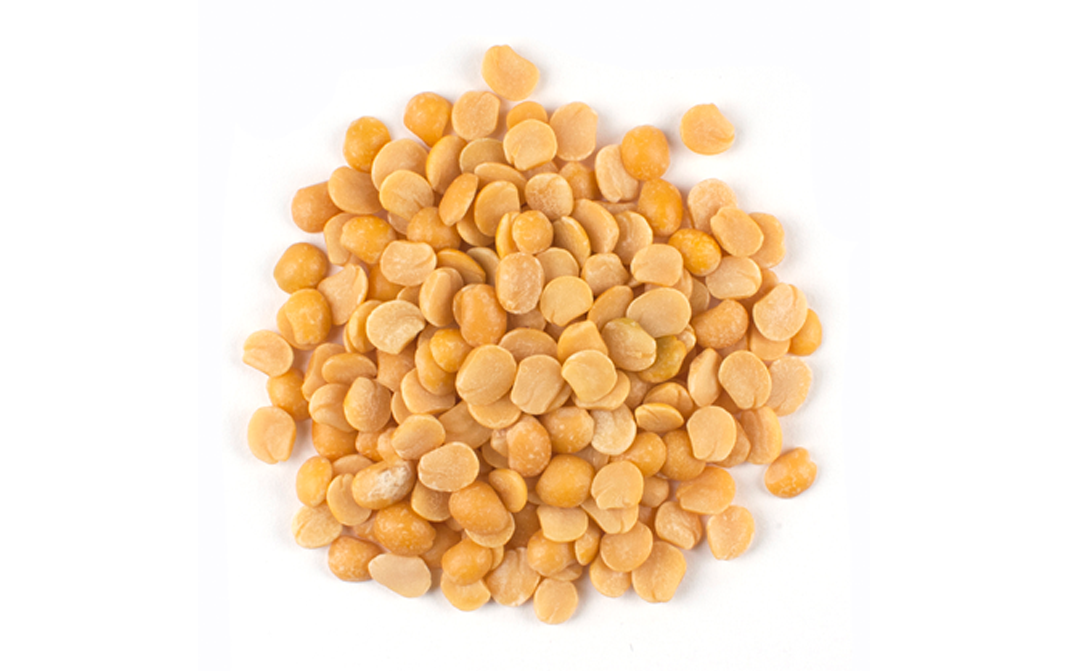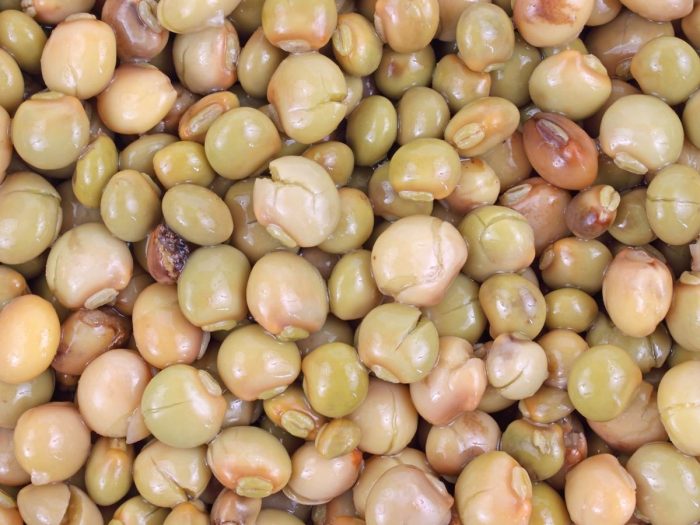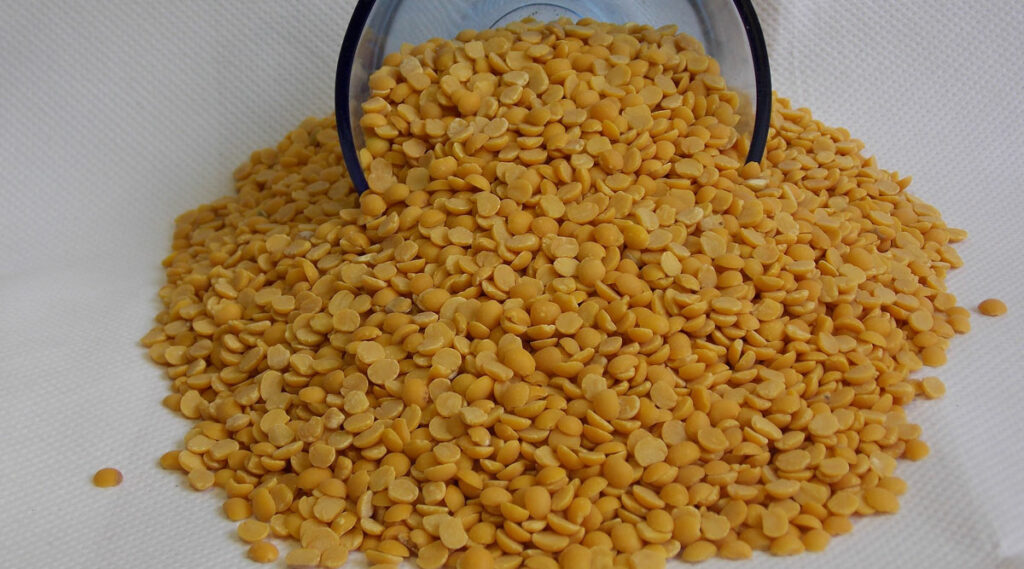Pigeon peas, also known as tur or arhar dal, are a staple legume in many cultures around the world, particularly in India, Africa, and the Caribbean. These little beige spheres pack a surprising nutritional punch and are linked to a variety of potential health benefits. So, if you’re curious about this versatile legume, you’ve come to the right place. Let’s delve deeper into the fascinating world of pigeon peas, exploring their nutritional profile and their potential role in supporting a healthy lifestyle.
Pigeon Peas: A Nutritious Powerhouse in Every Bite
Pigeon peas are a nutritional powerhouse, offering an impressive array of vitamins, minerals, and fiber. Here’s a glimpse into what makes pigeon peas such a valuable dietary addition:
- Protein Packed: Pigeon peas are a good source of plant-based protein, containing around 8 grams per cooked cup. This makes them a valuable protein option for vegetarians, vegans, and anyone looking to increase their protein intake.
- Fiber for Function: Pigeon peas are a good source of dietary fiber, which promotes gut health, supports digestion, and can aid in weight management by promoting feelings of fullness.
- Micronutrient Marvels: Pigeon peas boast a variety of essential vitamins and minerals, including folate, potassium, magnesium, iron, and phosphorus. These micronutrients play crucial roles in various bodily functions, from blood cell formation and nerve function to muscle health and bone health.
Here’s a quick breakdown of the nutrients in one cup (around 185 grams) of cooked pigeon peas:
- Calories: 230
- Protein: 18.5 grams
- Fiber: 7 grams
- Carbohydrates: 38 grams
- Folate: 94% DV (Daily Value)
- Potassium: 18% DV
- Magnesium: 30% DV
- Iron: 27% DV
- Phosphorus: 31% DV

Credit – GoToChef
As you can see, a single cup of cooked pigeon peas provides a significant amount of protein, fiber, vitamins, and minerals, making them a valuable addition to a healthy diet.
Pigeon Peas to the Rescue! Exploring Potential Health Benefits
Beyond their impressive nutrient profile, pigeon peas are linked to a variety of potential health benefits. Let’s explore some of the most promising research:
- Supports Heart Health: The combination of protein, fiber, and healthy fats in pigeon peas might contribute to heart health by promoting healthy cholesterol levels and potentially lowering blood pressure. The presence of potassium in pigeon peas can further help regulate blood pressure.
- Aids in Digestion: The fiber content in pigeon peas promotes healthy digestion by aiding in the movement of food through the digestive tract and supporting the growth of beneficial gut bacteria.
- May Help Manage Weight: Pigeon peas’ protein and fiber content can help you feel fuller for longer, potentially aiding in weight management efforts. Studies suggest that diets rich in protein and fiber can promote satiety and reduce overall calorie intake.
- Blood Sugar Control Benefits: The fiber and protein in pigeon peas may help regulate blood sugar levels. Fiber slows down the absorption of sugar in the bloodstream, and protein can improve insulin sensitivity. However, more research is needed to definitively understand the impact of pigeon peas on blood sugar control in humans.
- Potential Anti-Inflammatory Properties: Some studies suggest that pigeon peas may possess anti-inflammatory properties. These properties might be linked to certain bioactive compounds found in pigeon peas. However, more research is required to understand the mechanisms and potential clinical applications.
It’s important to note that most of the research on pigeon peas’ health benefits is based on observational studies or pre-clinical studies. While these findings are promising, more robust clinical trials are needed to definitively confirm the cause-and-effect relationships between pigeon pea consumption and specific health outcomes.
Unlocking Versatility: Cooking with Pigeon Peas
Pigeon peas are a versatile ingredient that can be enjoyed in various ways. Here are some tips to incorporate pigeon peas into your meals:
- Dal Delights: Pigeon peas are a staple ingredient in various dal (lentil) dishes across South Asia. These stews can be enjoyed with rice, roti (flatbread), or simply on their own. Experiment with different spices and vegetables to create your own unique dal variations.
- Soups and Stews: Adding pigeon peas to soups and stews adds a protein and fiber boost. They work well in vegetable soups, lentil soups, and even curries. The earthy flavor of pigeon peas complements a variety of spices and vegetables.
- Salads with a Protein Punch: Toss cooked and cooled pigeon peas into your salads for a protein and nutrient boost. The pigeon peas add a satisfying texture and pair well with various salad ingredients.
- Sprouted Surprise: Sprouting pigeon peas enhances their nutrient profile and digestibility. Sprouted pigeon peas can be enjoyed in salads, stir-fries, or even added to sandwiches for a crunchy and nutritious touch.
-

Credit – Organic Facts Beyond the Obvious: The possibilities are endless! Experiment by grinding pigeon peas into flour for use in baking or using them as a thickener in sauces and stews. With a little creativity, you can find ways to incorporate pigeon peas into various dishes throughout the day.
Remember, even a small amount of pigeon peas can offer a significant nutritional boost. Start by adding a handful to your favorite dishes and gradually increase your intake as you explore different ways to enjoy their taste and versatility.
Safety Considerations with Pigeon Peas
Pigeon peas are generally safe for most people to consume in moderation. However, there are a few things to keep in mind:
- Lectins: Like other legumes, pigeon peas contain lectins, which can cause digestive discomfort in some people. Soaking and rinsing pigeon peas before cooking helps reduce lectin content and improve digestibility.
- Anti-Nutrients: Pigeon peas contain phytic acid, which can interfere with the absorption of certain minerals. Soaking and sprouting pigeon peas can help reduce phytic acid content and improve mineral bioavailability.
- Goitrogens: Pigeon peas, like other legumes, contain goitrogens, which can interfere with thyroid function in people with pre-existing thyroid conditions. If you have a thyroid condition, consult with your doctor before significantly increasing your intake of pigeon peas.
Overall, pigeon peas are a safe and healthy food for most people when consumed in moderation. If you have any pre-existing health conditions, discuss pigeon pea consumption with your doctor to ensure it’s safe for you.
Pigeon Peas: A Sustainable and Eco-Friendly Choice
Pigeon peas are a drought-resistant crop that requires less water than many other legumes. Additionally, they can fix nitrogen in the soil, which can benefit other crops grown in rotation. These factors make pigeon peas a sustainable and eco-friendly food choice.
The Future of Pigeon Peas: Research and Development
Research on pigeon peas continues to explore their potential health benefits and identify new uses for this versatile legume. Here are some interesting trends:
- Improved Varieties: Researchers are developing new pigeon pea varieties with higher yields, improved nutritional profiles, and resistance to pests and diseases.
- Food Product Development: The food industry is exploring new ways to incorporate pigeon peas into food products. This includes developing gluten-free flours, plant-based meat alternatives, and even pigeon pea milk.
- Exploring Medicinal Properties: Some research suggests that pigeon peas may have potential medicinal properties. More research is needed to explore these possibilities further.
In Conclusion: Pigeon Peas – A Nutritious and Versatile Legume
Pigeon peas are more than just a staple food in many cultures. They are a versatile and nutritious legume with a promising future. By incorporating pigeon peas into your diet and exploring different ways to enjoy them, you can add a protein and nutrient boost to your meals while supporting a sustainable food system.
Remember: Pigeon peas are a delicious and nutritious addition to a balanced diet. Explore different ways to incorporate them into your meals and enjoy their versatility. If you have any questions or concerns about pigeon pea consumption, consult with a registered dietitian or healthcare professional.



